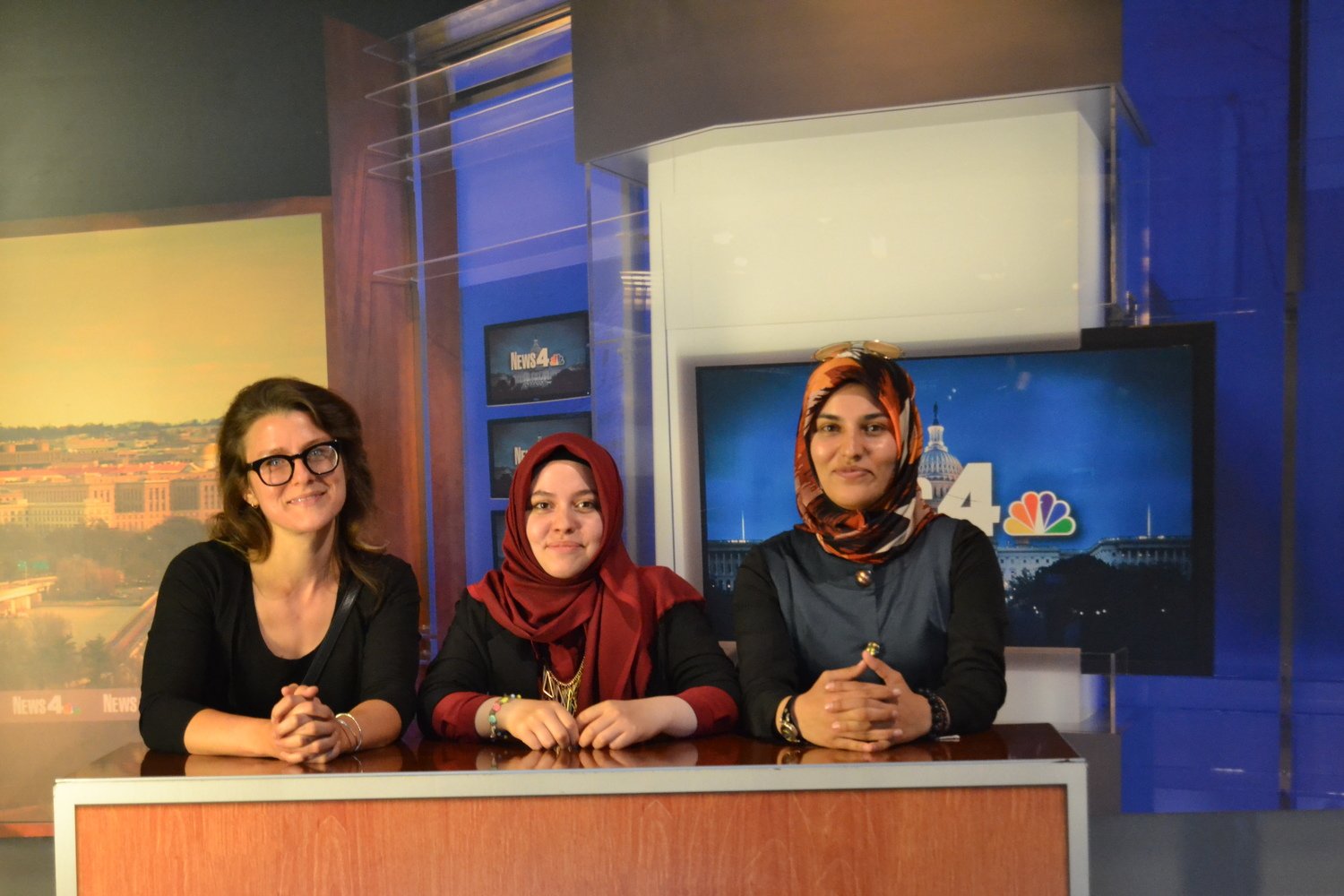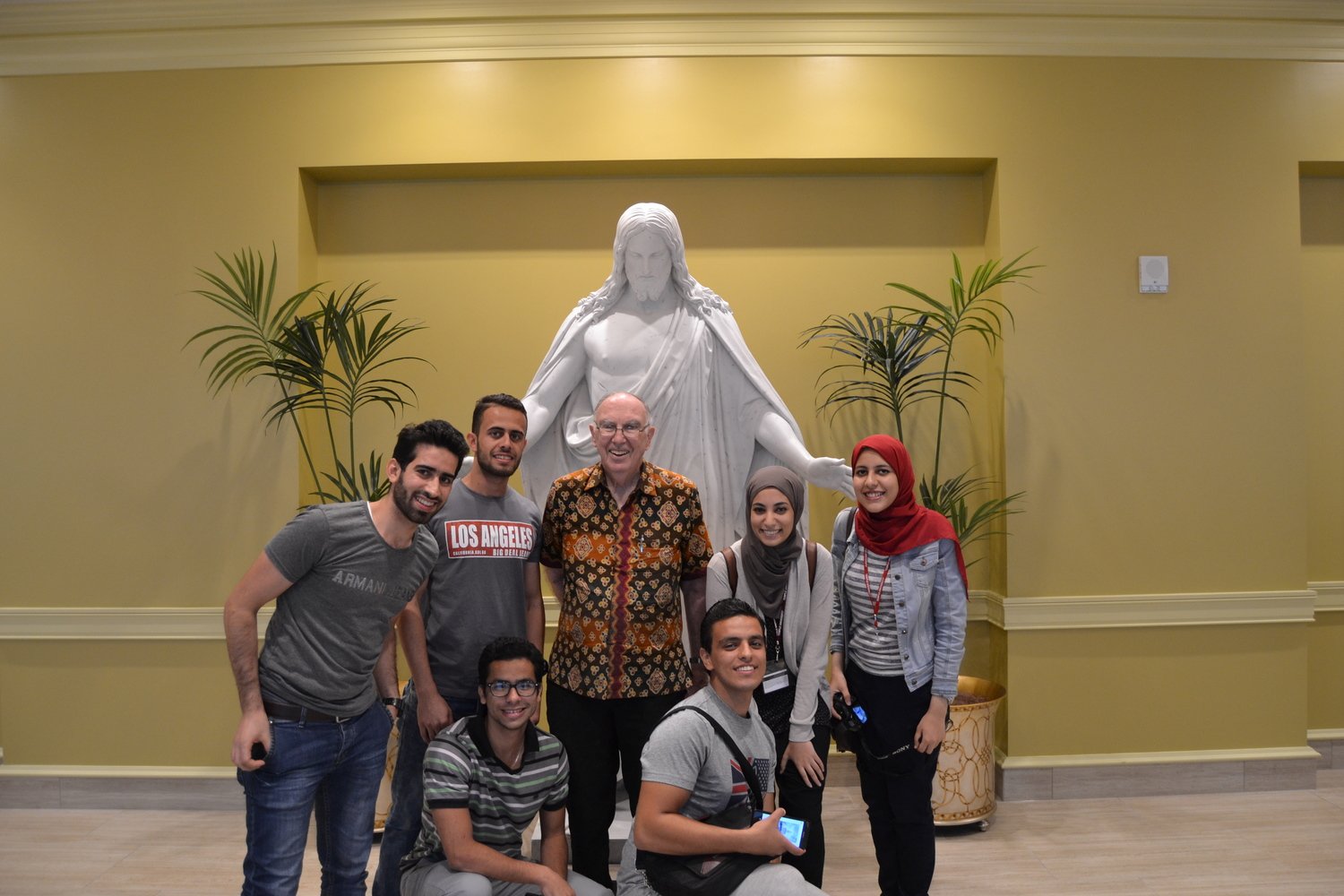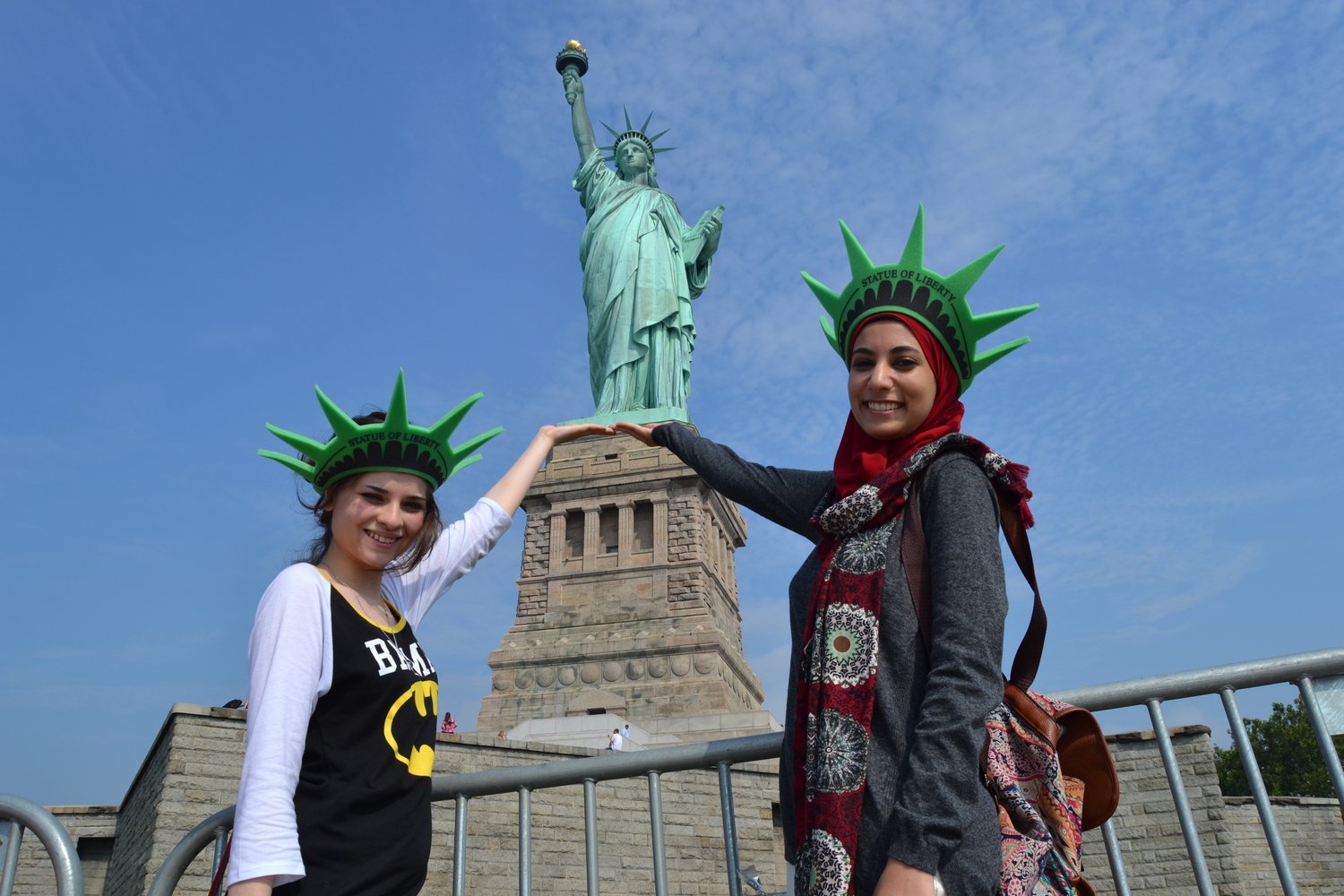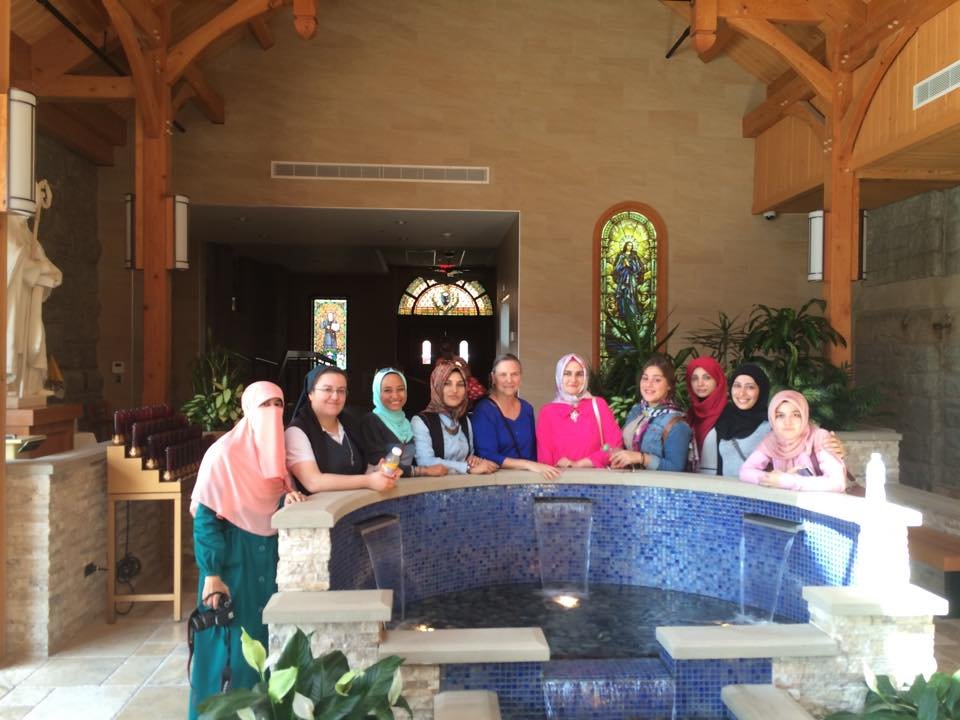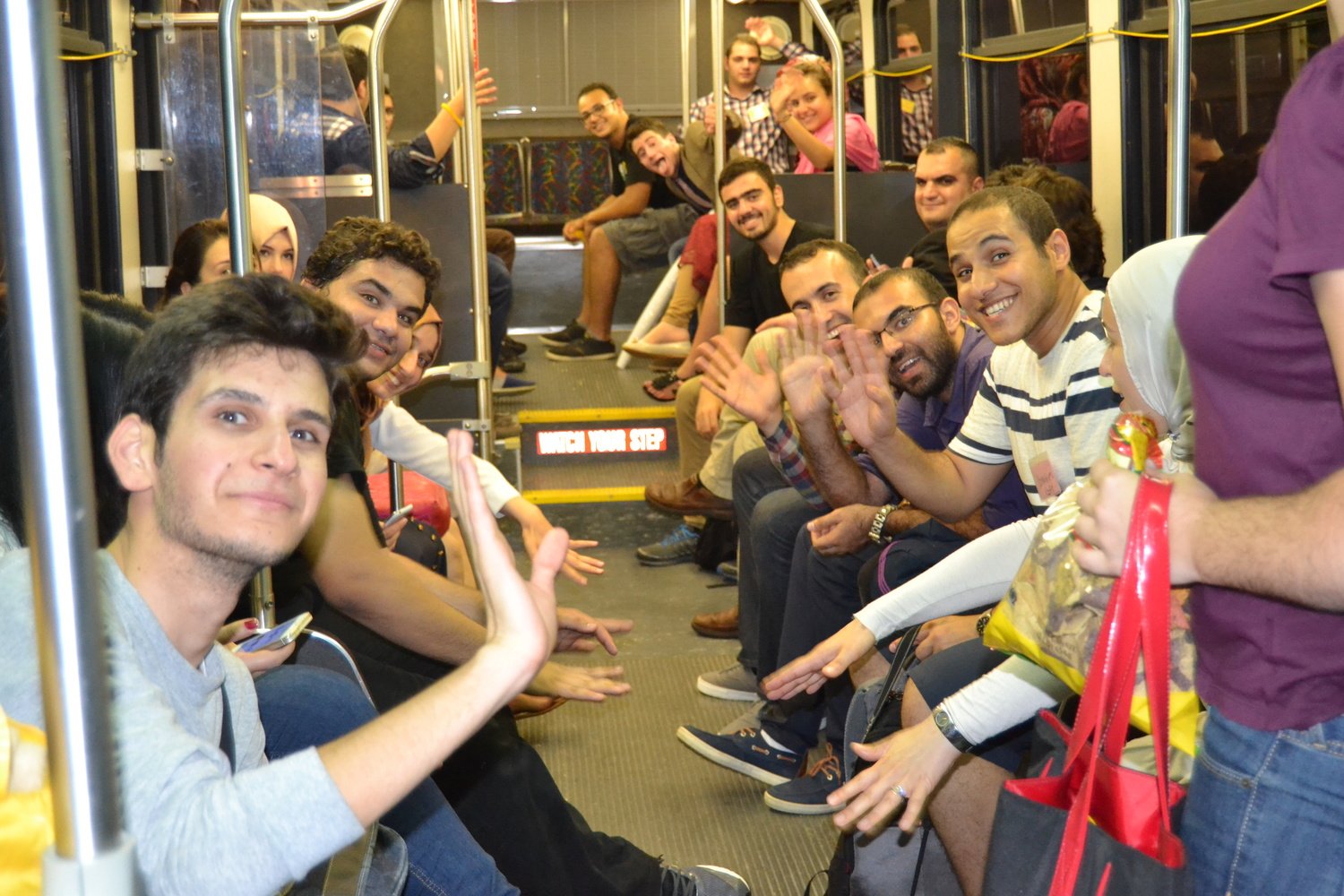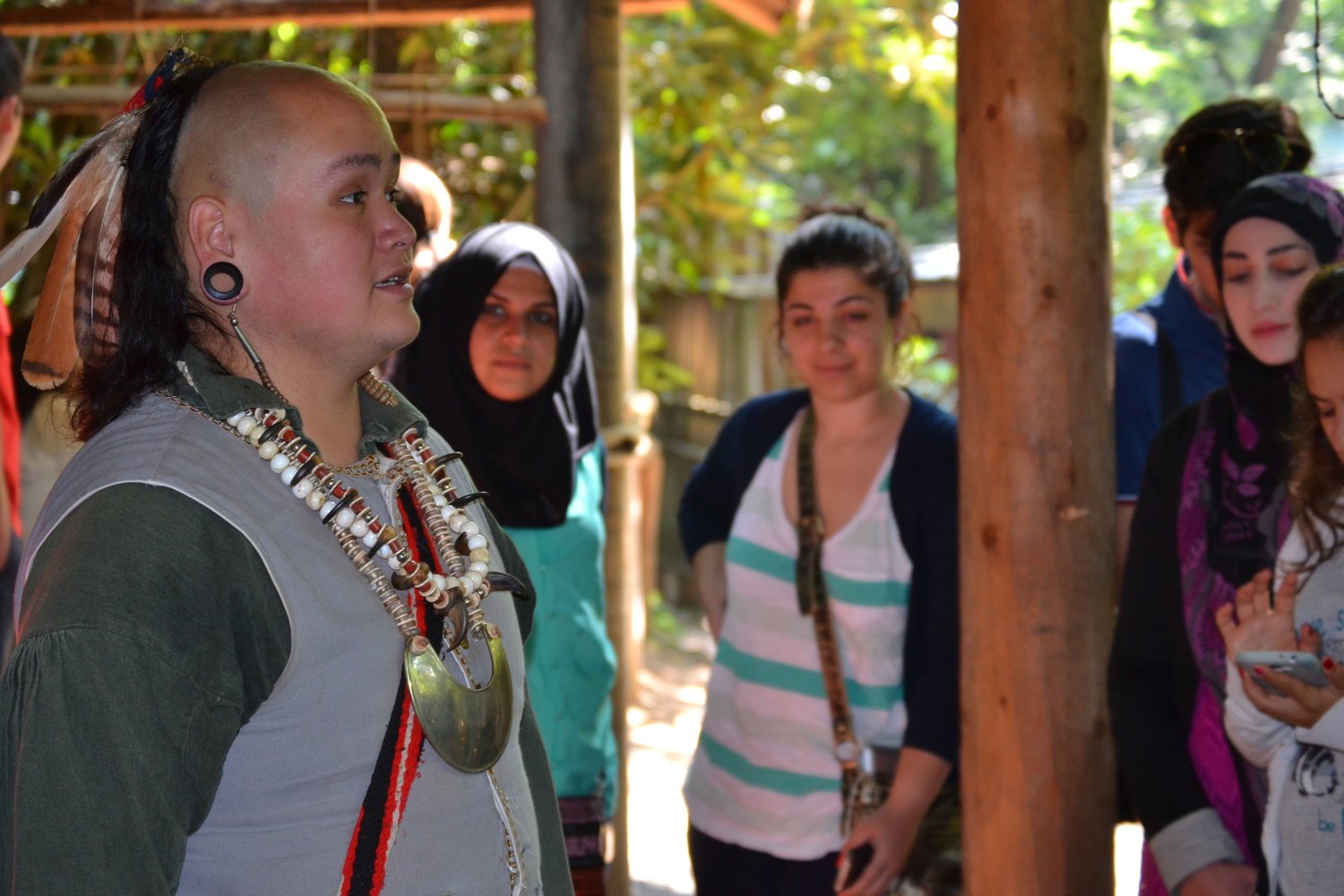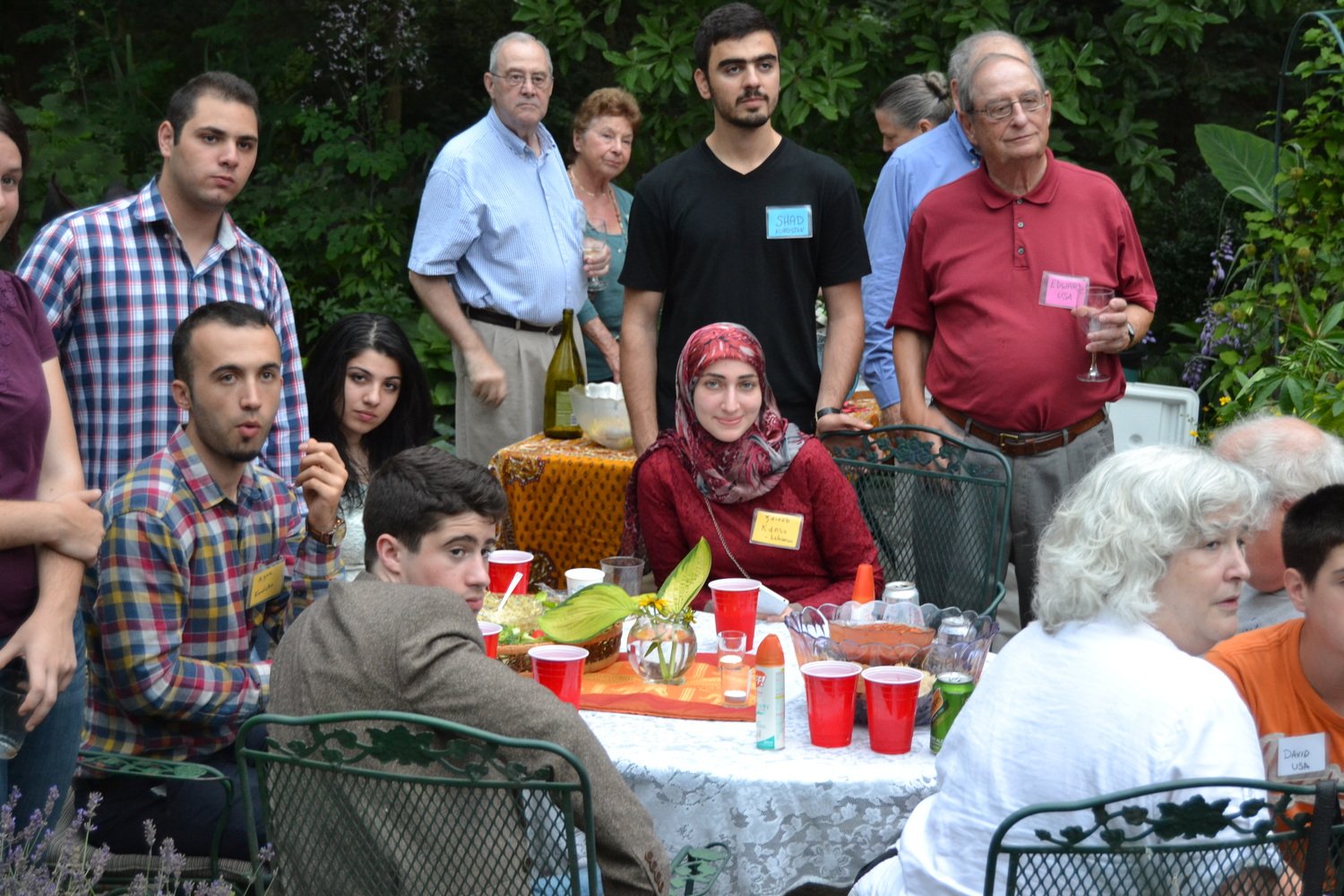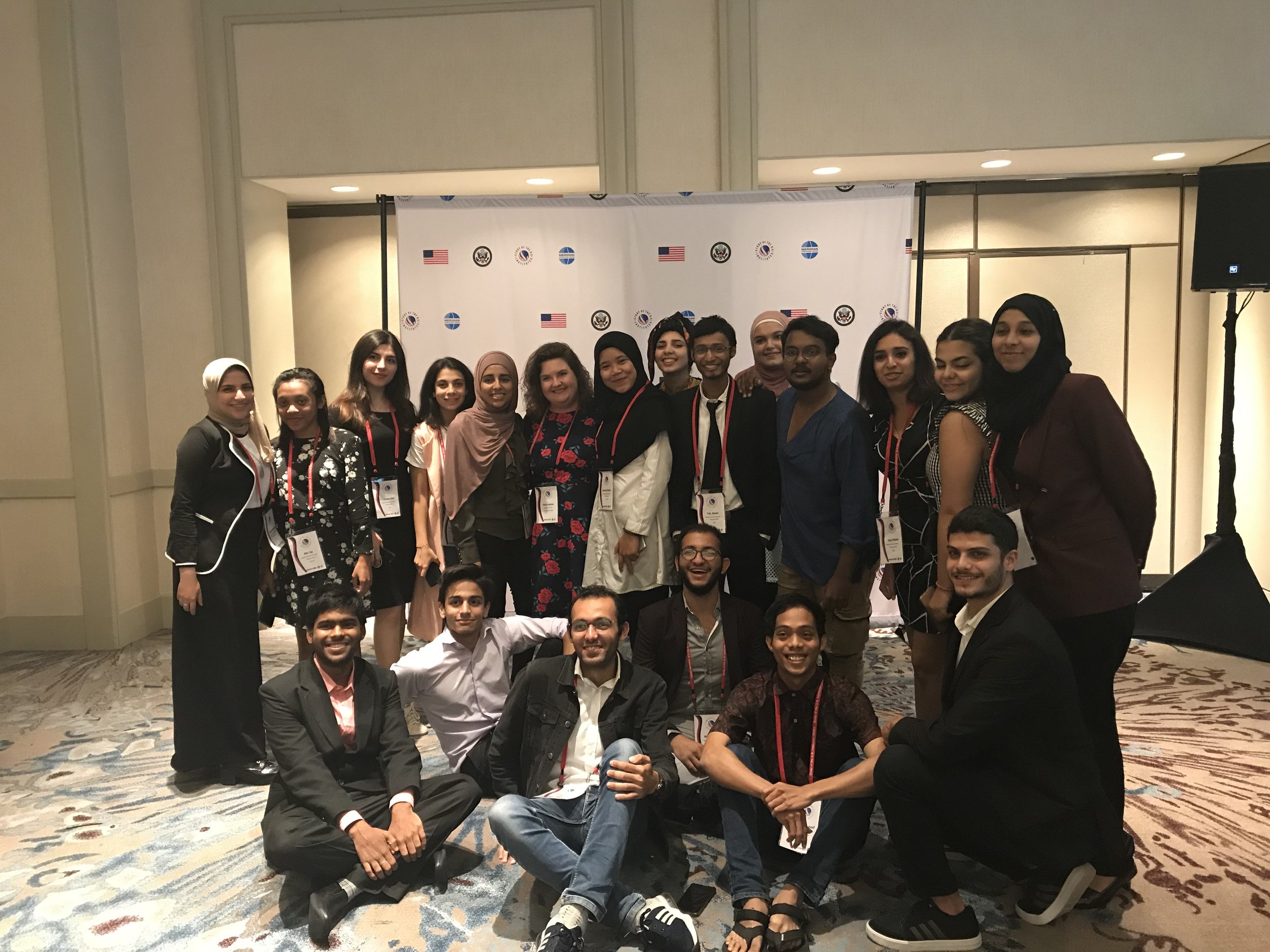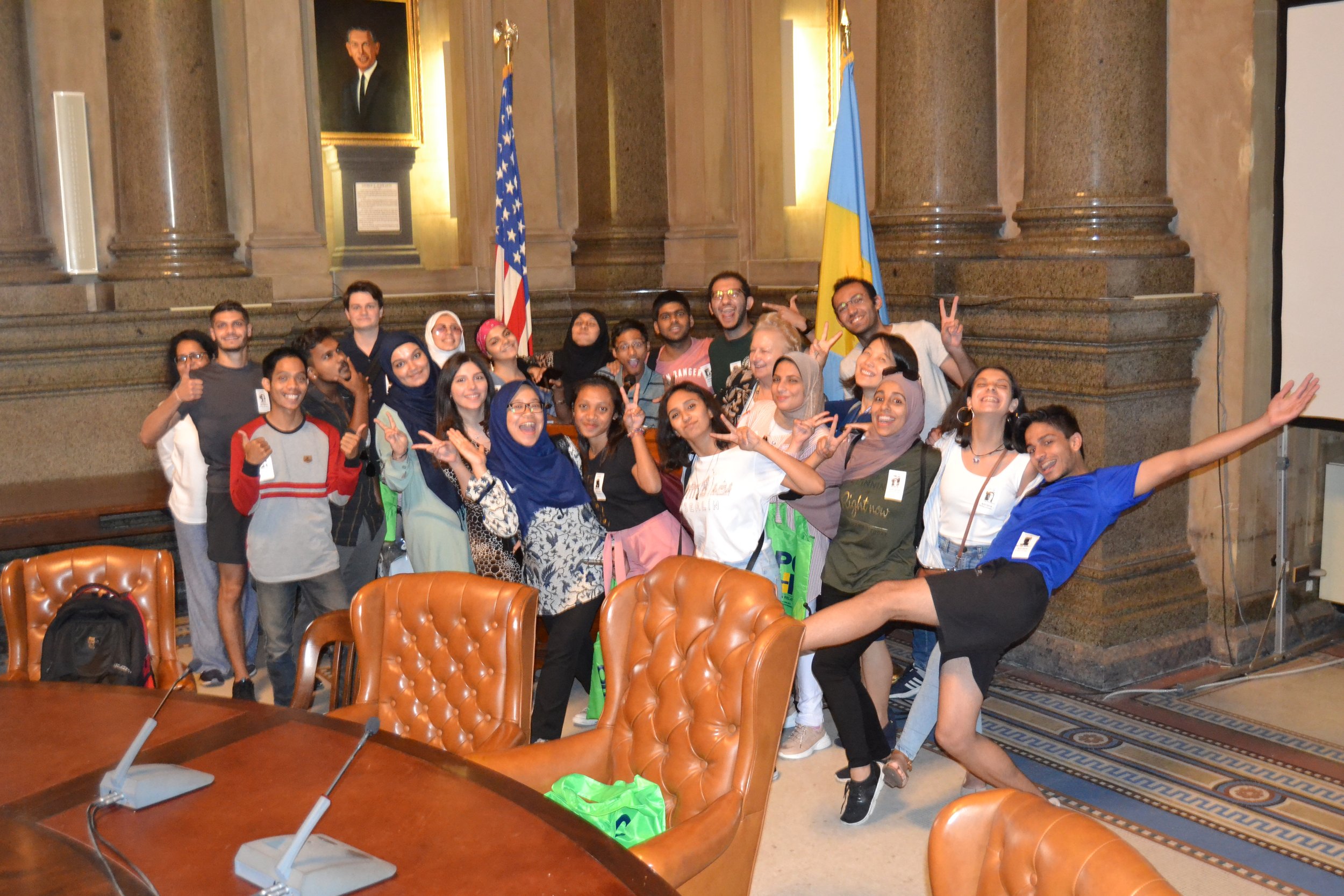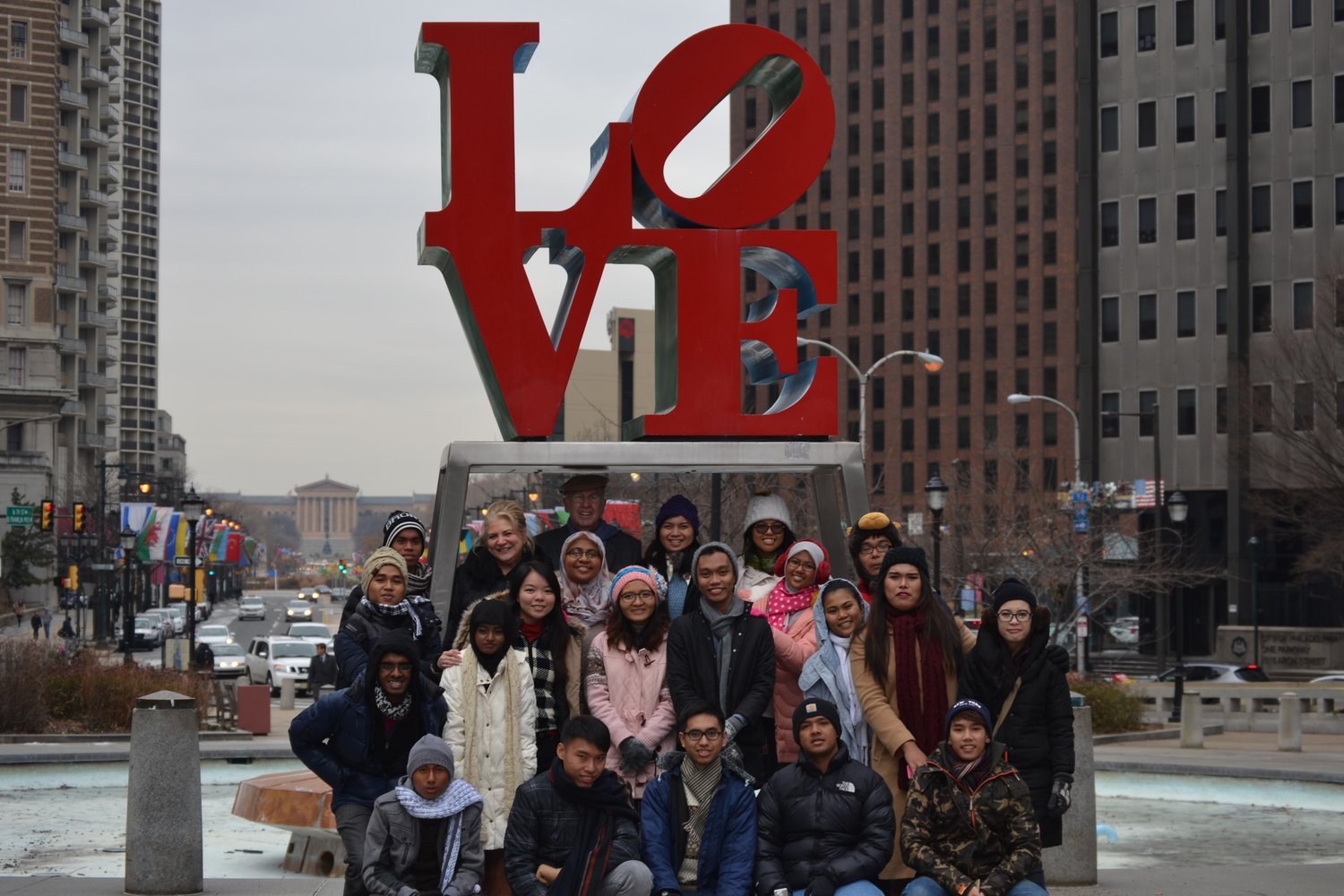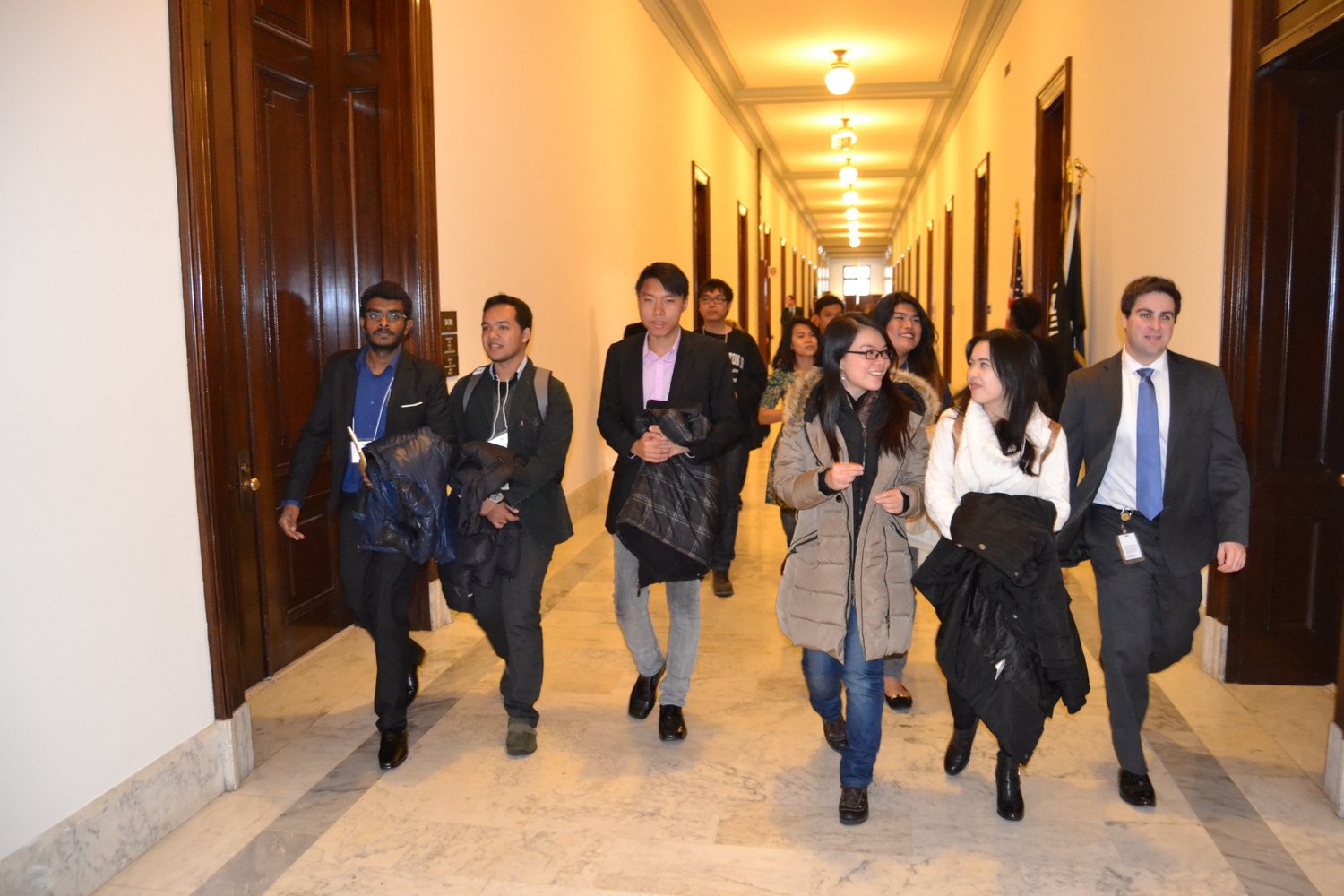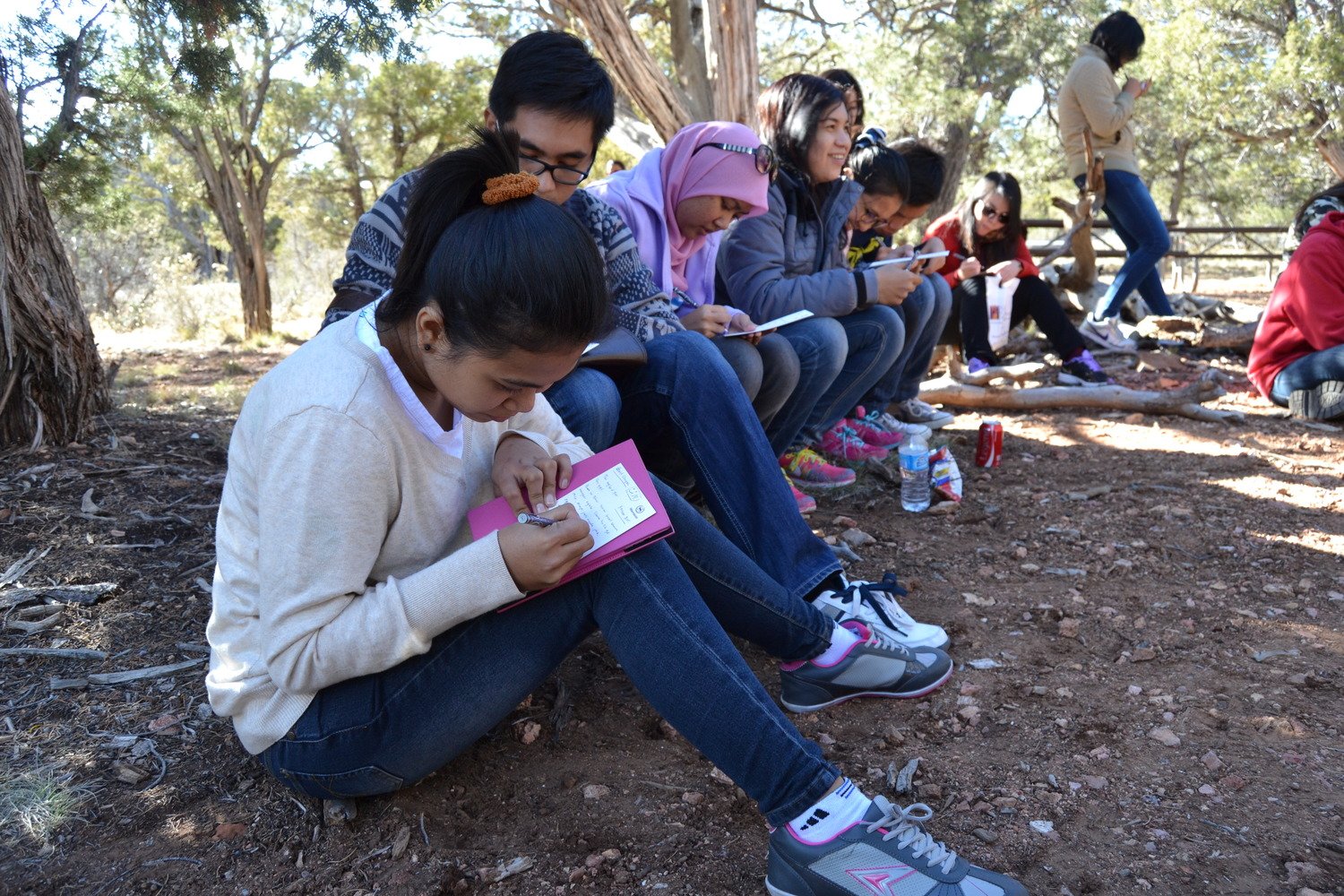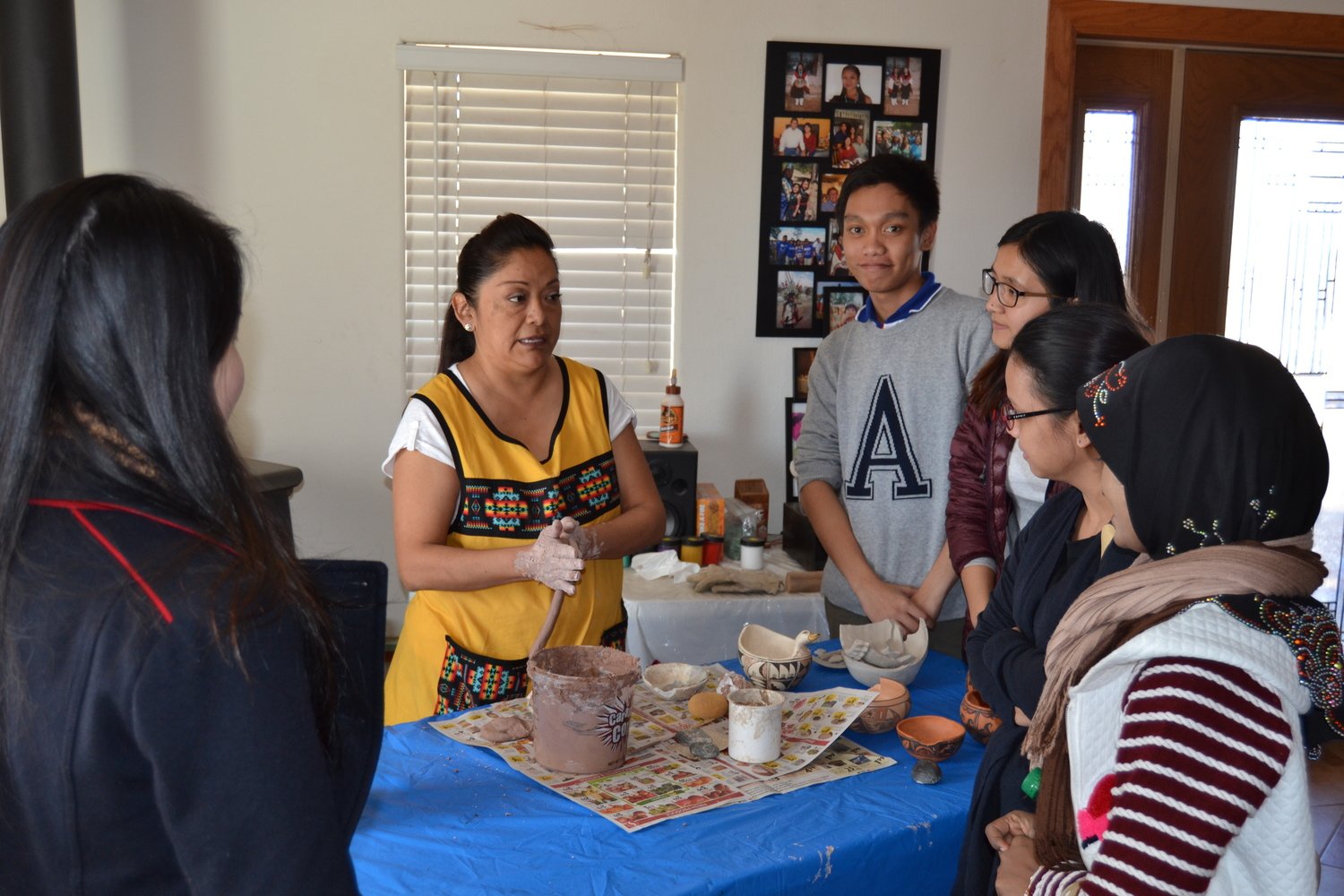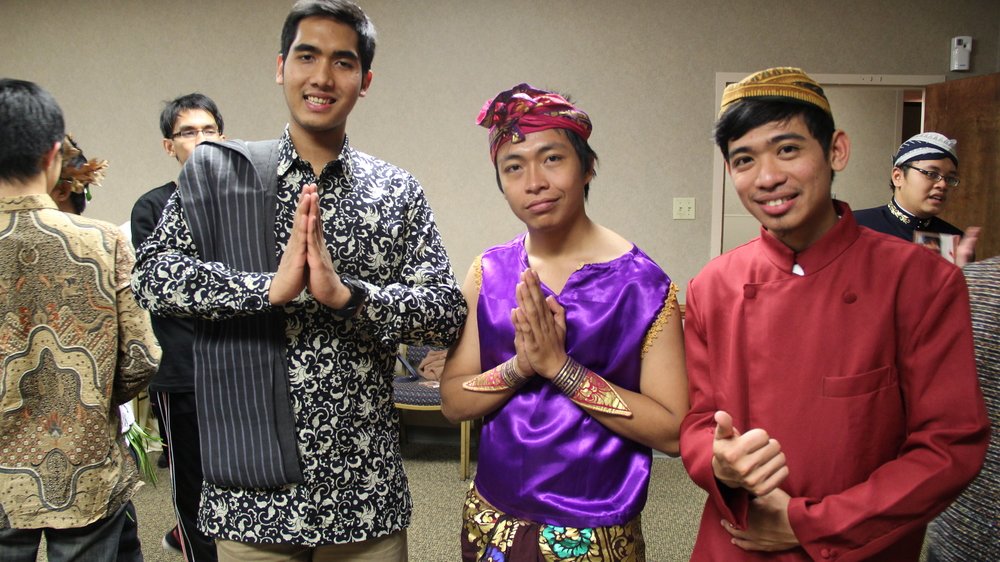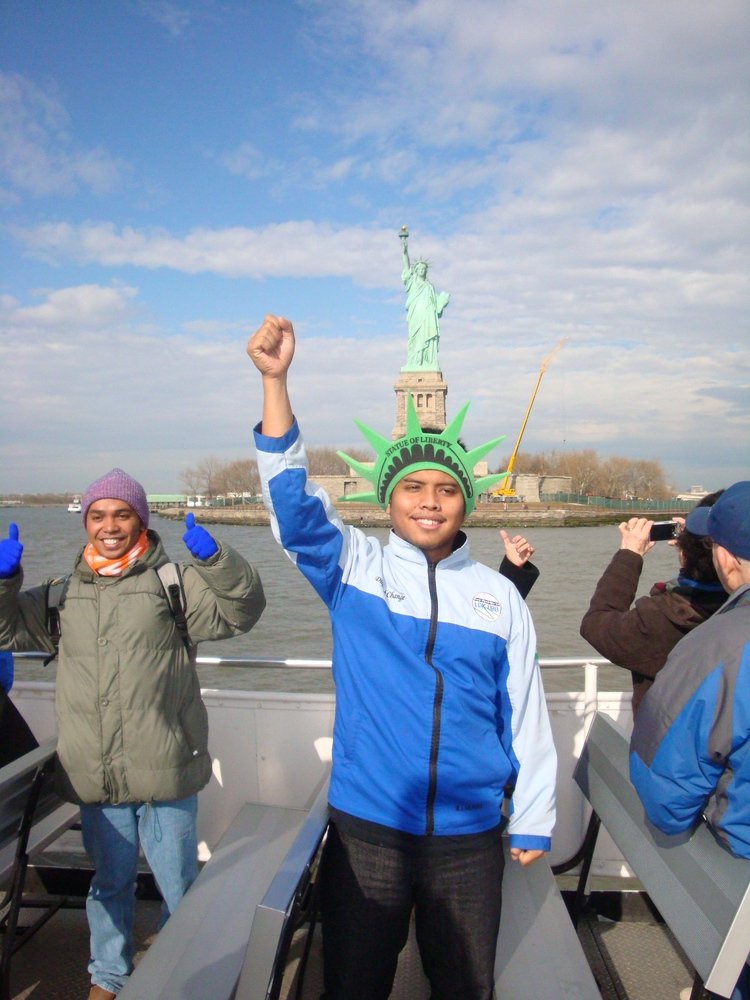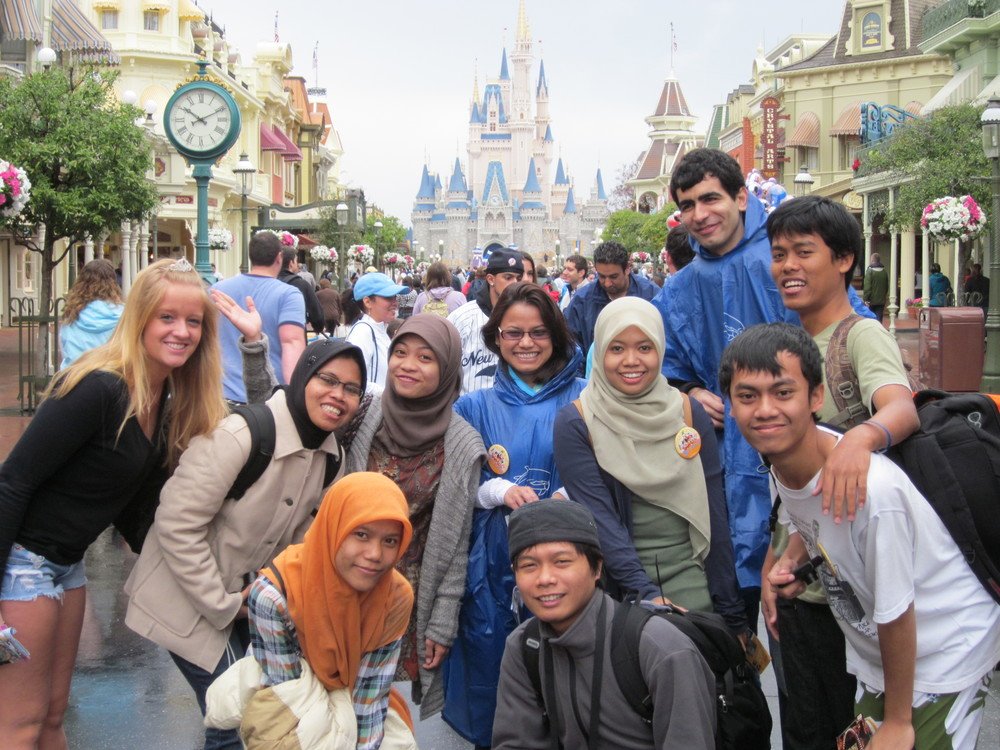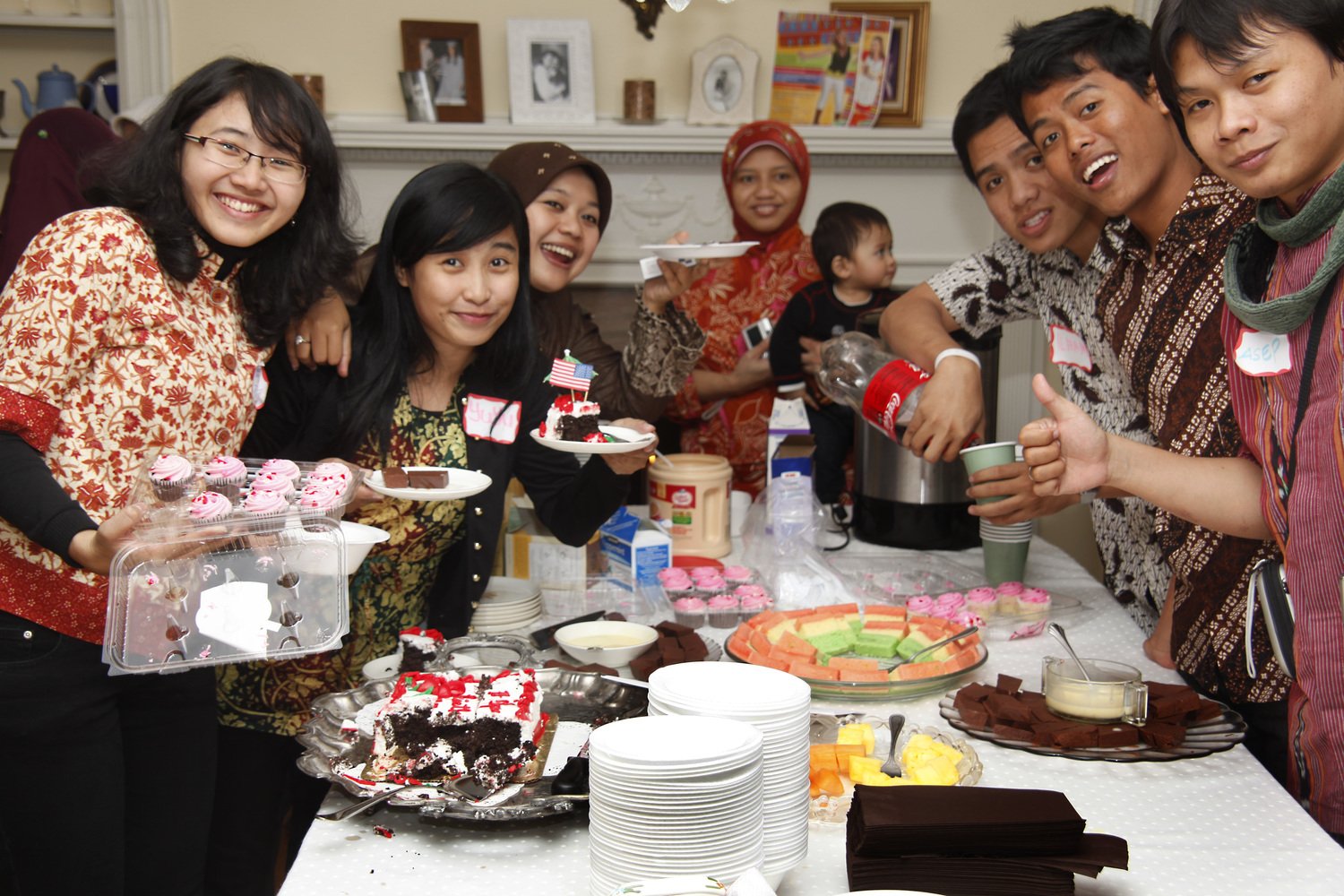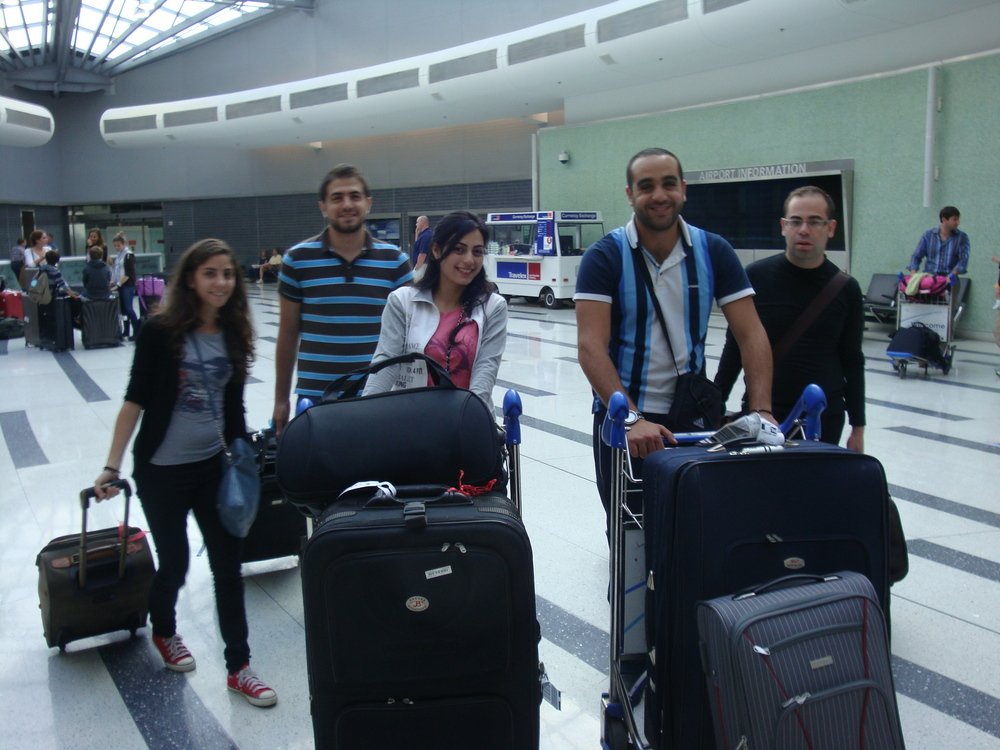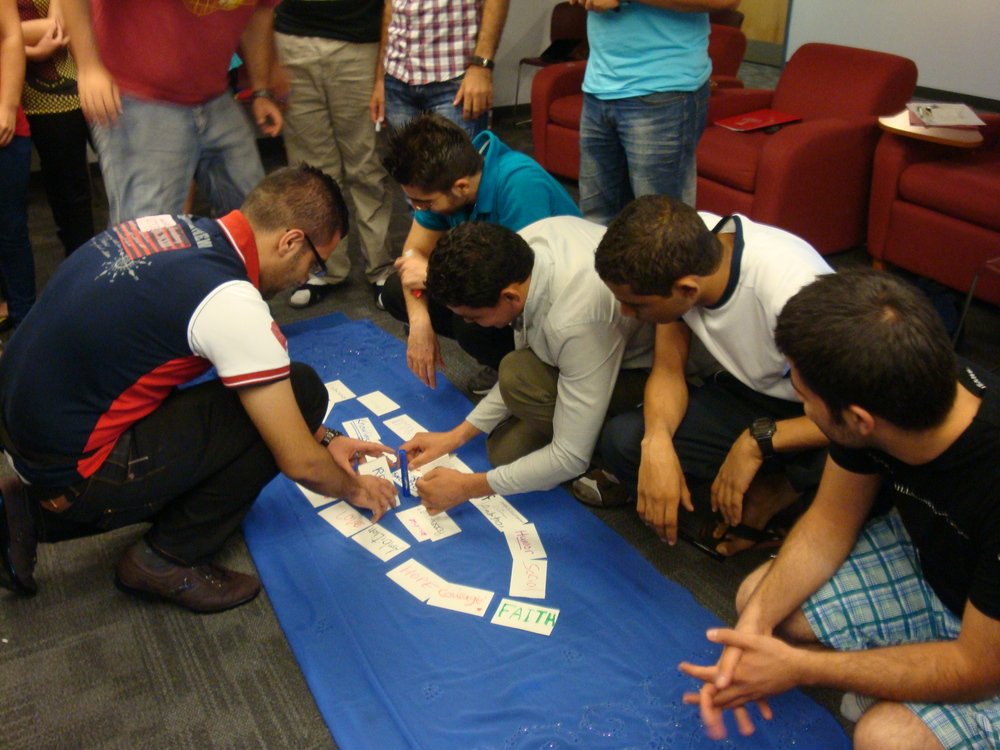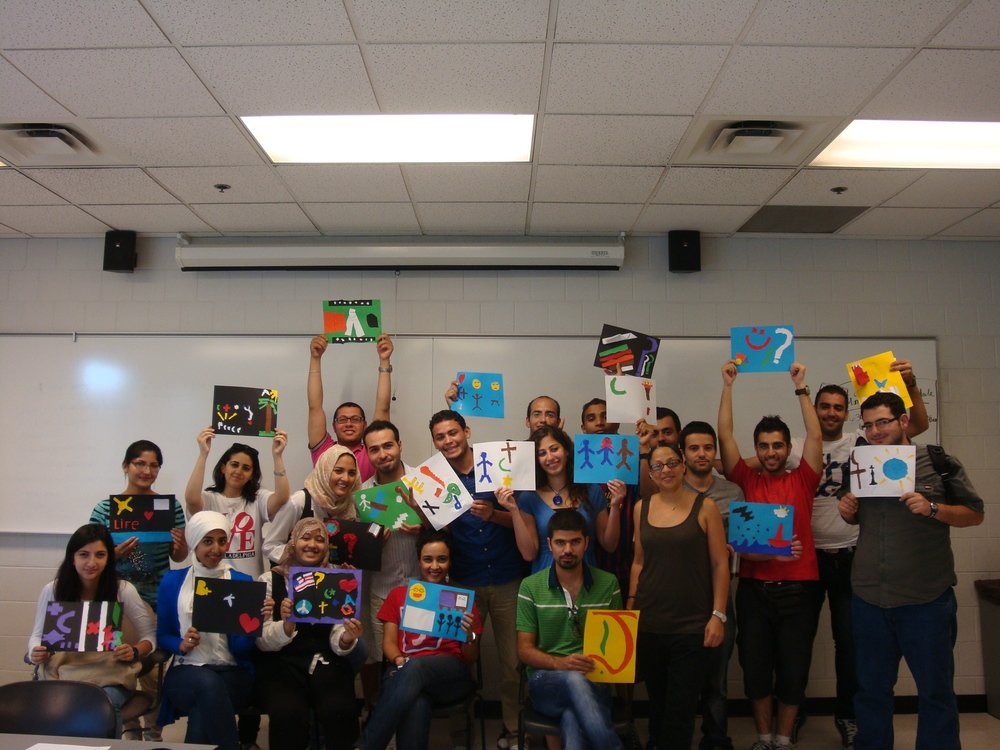Study of the U.S. Institutes for Student Leaders
The Dialogue Institute has been hosting Study of the U.S. Institutes (SUSI) for Student Leaders since 2010, focusing on Religious Pluralism in the United States.
Study of the U.S. Institutes (SUSIs) for Student Leaders are five-to-six-week academic programs designed for foreign undergraduate students between the ages of 18 and 25 to improve their understanding of the United States and to develop their leadership skills. Institutes include a four-week academic residency consisting of interactive classroom activities, discussions, lectures, readings, site visits, and workshops; a one-week educational study tour to a different region of the United States; leadership skill-building activities; community service; and opportunities to interact with their American peers on a college campus. Each Institute includes approximately 20 participants from selected countries.
To date, more than 300 alumnae have participated. The program, sponsored by the U.S. Department of State (Bureau of Educational and Cultural Affairs), introduces students from the Middle East (summer) and Southeast Asia (winter, now discontinued by the State Department) to central elements of U.S. history, society, institutions, and democracy through a focus on religious freedom and pluralism in the American context.
Eligibility and Application Overview
Applicants must meet the following requirements:
Be between the ages of 18 and 25 and have at least one semester left of college or university
Demonstrate leadership through academic work, community involvement, and extracurricular activities
Proficient in reading, writing, and speaking English
Have little or no prior travel or study experience in the United States
Not a U.S. citizen or permanent resident of the United States
Eligible to receive a United States J-1 visa
Prospective participants should contact the Public Affairs Section of their local U.S. Embassy or Consulate for up-to-date information about current Institutes. U.S. Embassies manage the nomination of candidates, as well as organize participants' visa interviews and pre-departure orientations. In some countries, Fulbright Commissions may select candidates. Visit the Study of the U.S. Institutes program page HERE.
Program Objectives
Advance comprehension of democracy and religious liberty in the United States.
Deepen knowledge of the key structures and ideas in U.S. society that have created the context for religious pluralism.
Expand understanding of different religious traditions and foster appreciation for the strengths and complexities of a religiously pluralist society.
Identify and guide learning of the principles, values, and practices of interfaith dialogue.
Develop students’ capacity for leadership in their home contexts.
Offer students opportunities to learn and grow through significant engagement with American citizens of diverse backgrounds and interests.
What to bring:
Reusable water bottle
Hat for sun
Umbrella/ raincoat
Laptop/ tablet
Adapter for electronic devices
Comfortable shoes
Presentation clothing
Nicer pants/ long skirt and nicer shirt/ long sleeve shirts (and scarf for women) for religious site visits
Click the links below to read more about and/or see pictures from previous Institutes:
Winter 2016 - Southeast Asia (YSEALI)
Winter 2015 - Southeast Asia (YSEALI)
Winter 2013 - Indonesia
Winter 2012 - Indonesia
Winter 2011 - Indonesia
Community Action Projects
Consistent across Institutes, participants are expected to produce a final Community Action Project. Parameters for the Community Action Projects are defined by each University and inspired by teachings, trainings, observations, and conversations each participant has during the Academic Residency and the Case Study Tour. The projects reflect and meet the social, economic, or other needs of participants’ home communities and allow the impact of the SUSI program to extend far beyond each individual’s time in the U.S.
Sadig Aghalarov and Leyla Suleymanova, Azerbaijan
I am Me: Two SUSI alumni conducted a series of workshops that educated young people about issues of sexism in Azerbaijan and simple ways everyone can promote gender equality in their daily lives.
Faiz Jiwani, Aditya Devulapally, and Ashvin Zeta Joseph, India
The Dialogue Project: Three SUSI alumni trained a group of young people in their community to promote and facilitate interreligious dialogue, many of whom are now leading their own projects with the same goals.
Rasyida Rifa’ati Husna, Indonesia
Semarang Religious Diversity Youth for Peace: Using what she learned about religious pluralism during her SUSI Institute at Temple University, a SUSI alumna organized visits for youth from her community to congregations of different faiths. They learned from religious leaders in the Catholic, Ahmadiyah, Javanese Protestant, Buddhist, Unitarian, Hindu, and Shiaa communities.
Mursidin Yusuf, Indonesia
Project UP: A SUSI alumnus arranged seminars that brought in guest speakers to talk to people about the importance of embracing diversity.



